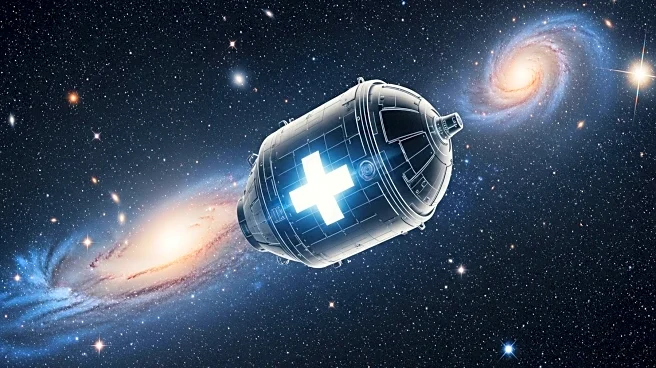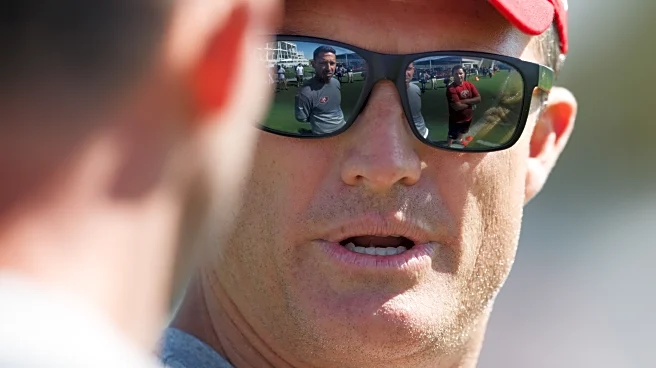What is the story about?
What's Happening?
The Expedition 73 crew aboard the International Space Station (ISS) focused on space medicine research, including eye structure, digestion, and heart health. NASA and international partners monitor crew health to understand the effects of microgravity on the human body. The crew conducted various experiments, including using a thigh cuff to reverse headward fluid flows and protect against Spaceflight Associated Neuro-ocular Syndrome (SANS). Meanwhile, a planned reboost of the ISS using SpaceX's Dragon spacecraft was aborted due to a fuel tank swap issue.
Why It's Important?
Understanding the effects of microgravity is crucial for planning safe and successful missions to the Moon, Mars, and beyond. Research on conditions like SANS helps develop countermeasures to protect astronauts on long-term space missions. The aborted reboost highlights the challenges of maintaining the ISS's orbit, which is essential for ongoing research and international collaboration in space.
What's Next?
Ground teams are reviewing plans for a follow-up reboost of the ISS. The research conducted aboard the ISS will continue to provide valuable insights into human health in space, aiding future missions. The successful reboost of the ISS is critical for maintaining its operational status and supporting ongoing scientific experiments.
Beyond the Headlines
The research on space medicine not only benefits astronauts but also contributes to medical advancements on Earth. Understanding how the human body adapts to microgravity can lead to new treatments for conditions related to fluid distribution and pressure changes.
















